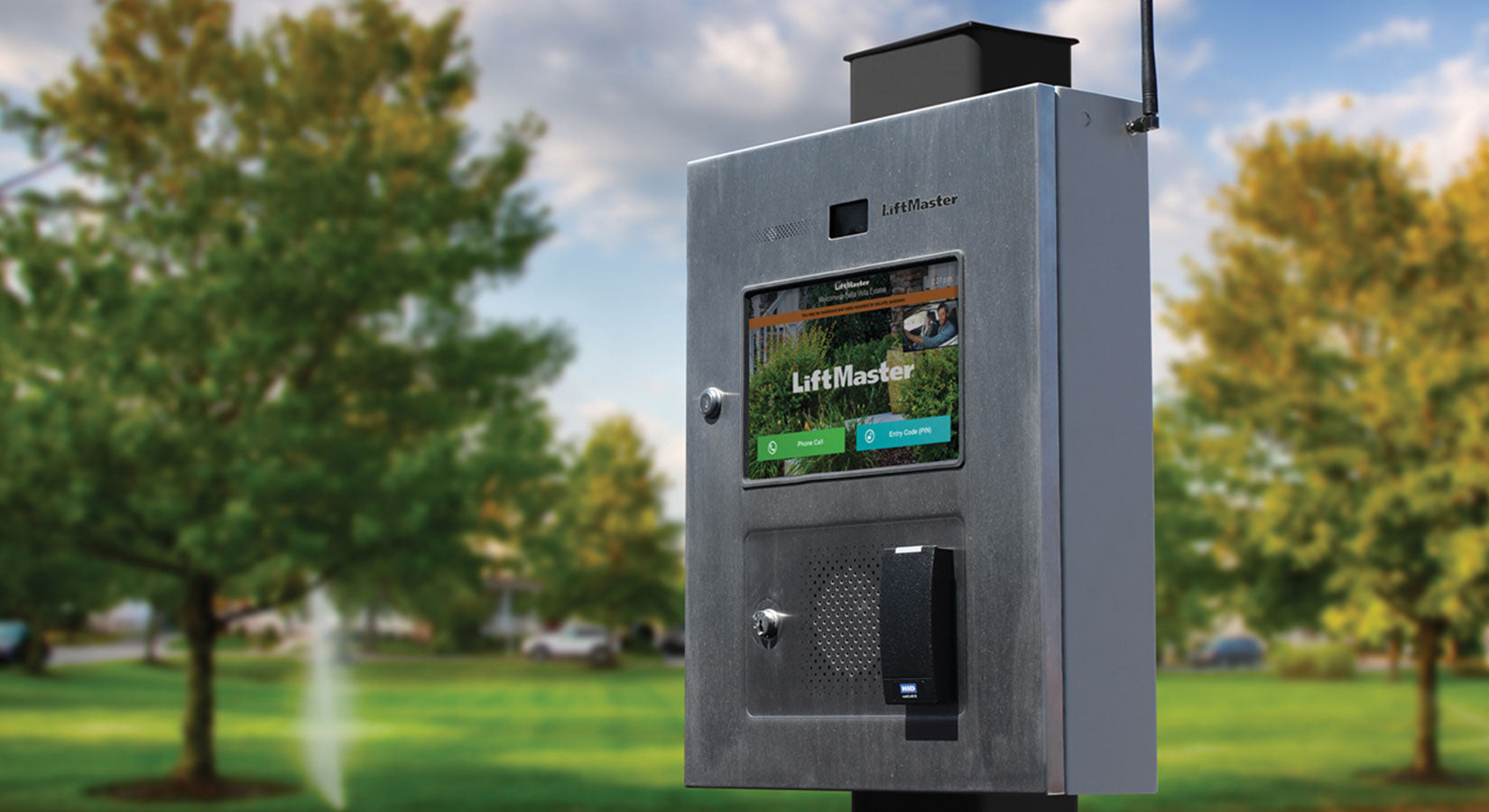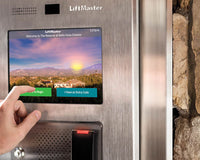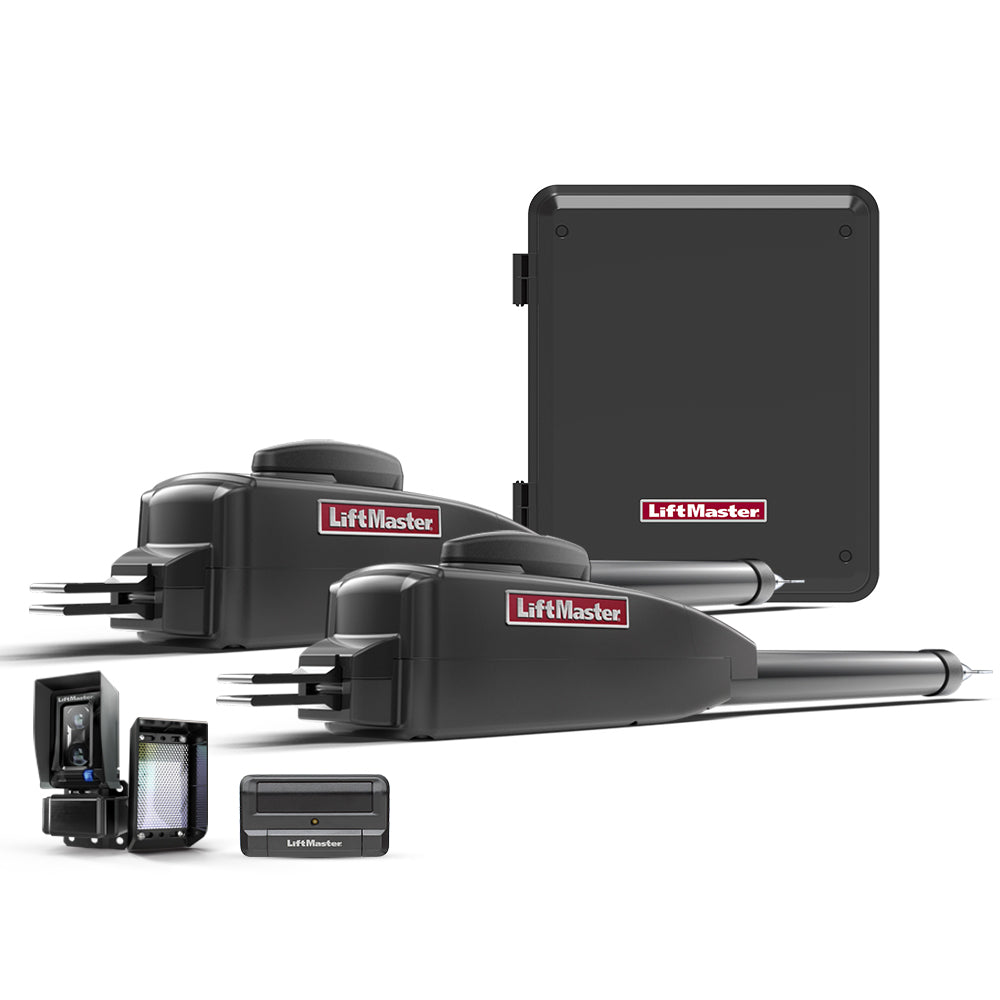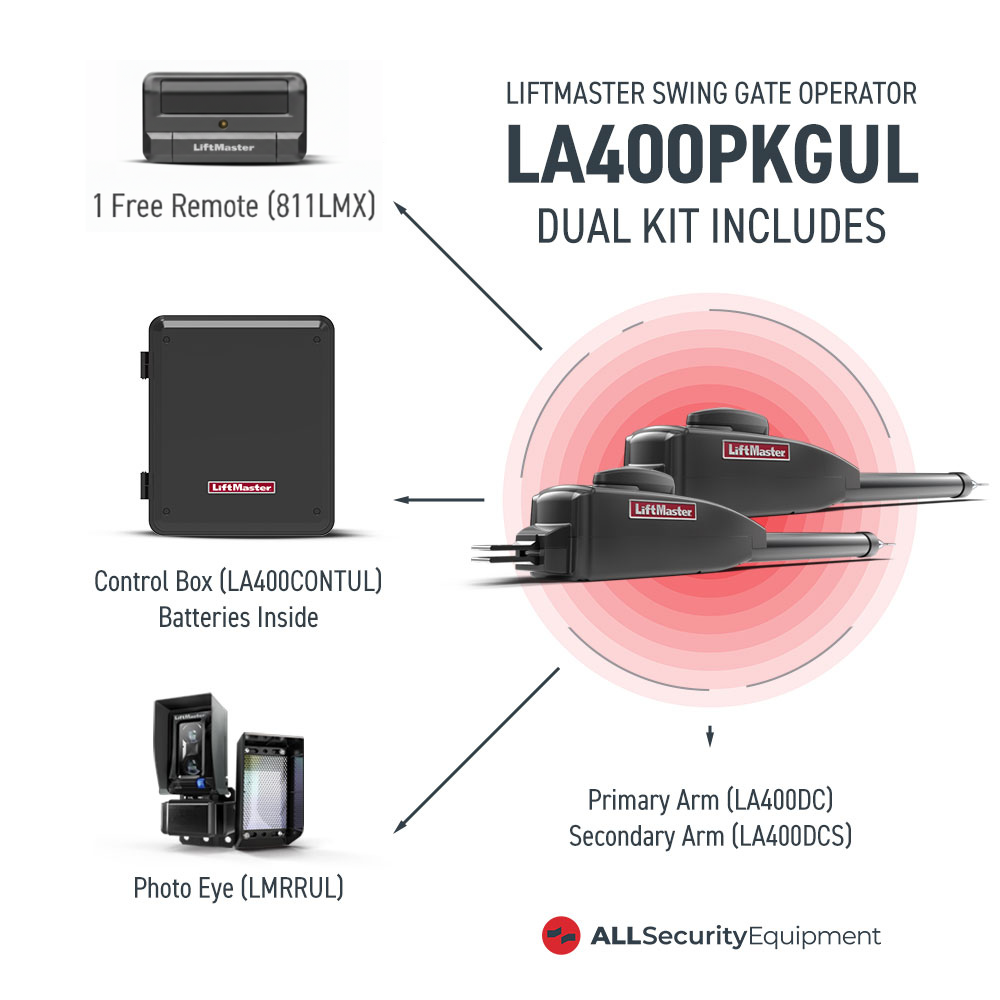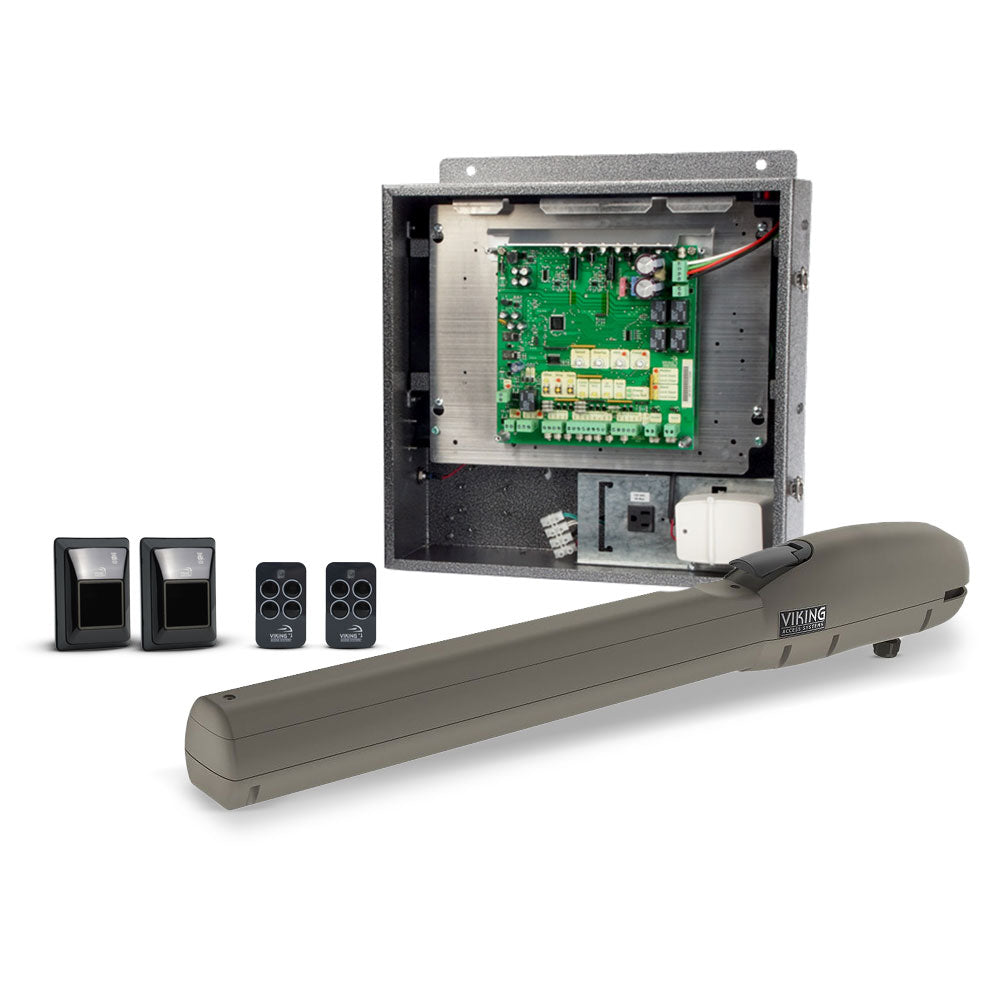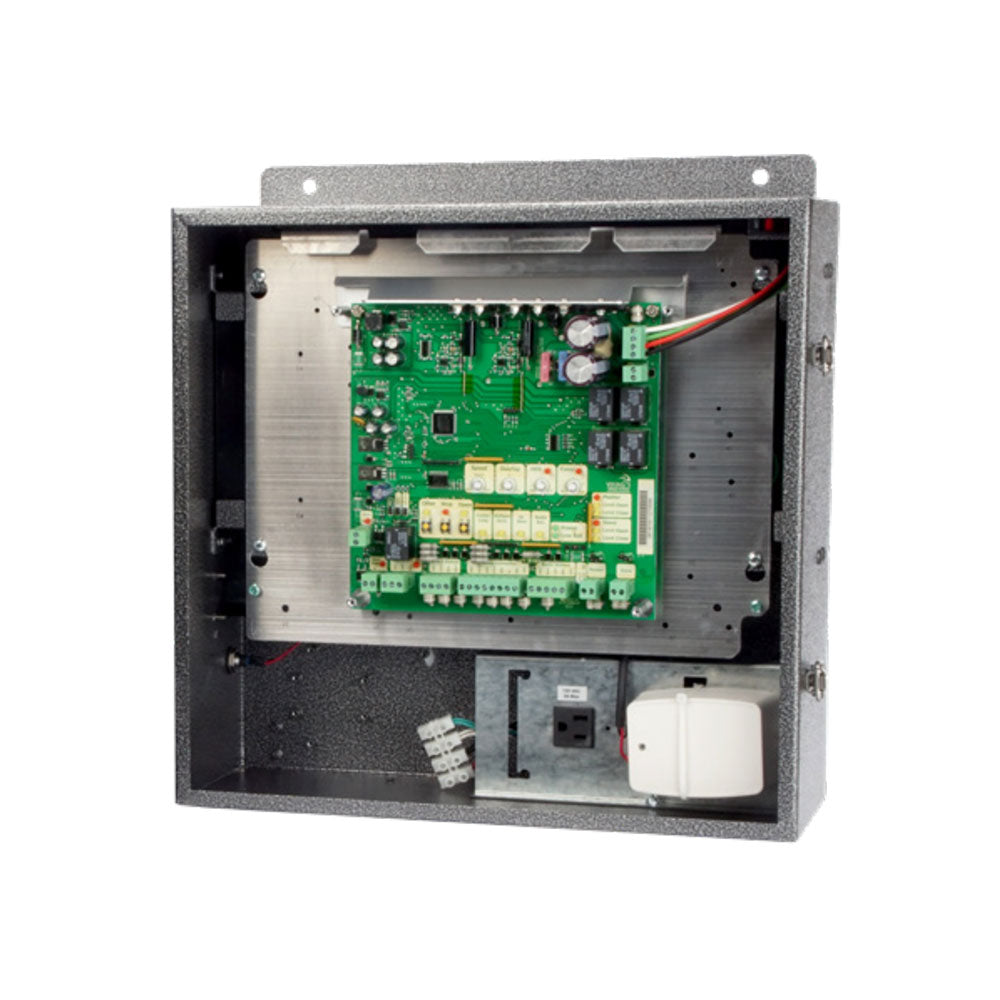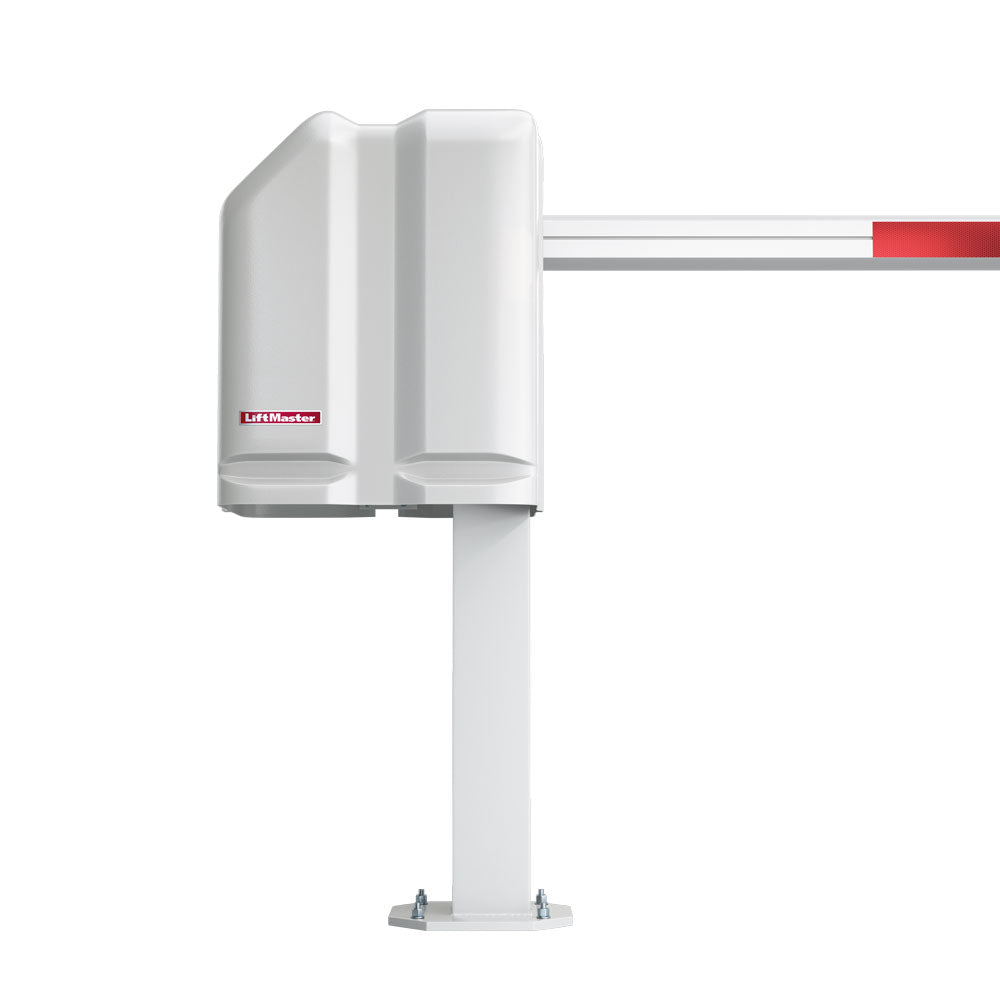For decades now, telephone entry systems have become synonymous with access security. Installation of a robust telephone entry system has always done the trick, whether for a commercial building, a gated community, or a private residence.
Of course, more sophisticated access control systems are now available on the market. However, there are many good reasons why the telephone entry system has persisted.
Let's take a quick look at what telephone entry systems are, why you might need one, and explore a few different types you could use in your own residence.
What Is a Telephone Entry System?
As the name would suggest, a telephone entry system is a secure access control system that operates through a telephone line. It's a way for residents of the secured building to communicate with their visitors via an intercom system.
A hardline telephone must be installed at your home, and the necessary hardware at the entry point for this residential telephone entry system to function. The idea is to have the visitor call the house through the hardware at the entry point. This hardware has a speaker and a microphone, which allows the visitor to communicate with the resident.
The resident will either grant the visitor access by pressing a pre-determined number to open the gate or door or refuse entry by simply not responding.
These devices are commonly installed at:
- Large apartment buildings
- The entrance to large parking lots
- The main gate to gated communities
- Senior living residences
- Student housing units
- Commercial buildings

How Do Telephone Entry Systems Work?
A typical telephone entry system allows the resident and their visitor to communicate over the hardwired telephone line before gaining entry.
To gain entry, the visitor needs to select the registered number of the desired resident, call them up, and hope they answer. Once the resident answers, the visitor will introduce themselves and ask for access. The resident will either grant them access by pressing "9" on their keypad or deny entry.
In the past, a phone entry system required residents to have in-unit hardware installed on their premises as well. These days, however, you can simply register a cellphone number and answer your door from wherever you may be.
For a telephone entry system to work, it needs these four components:
- Hardware installed at the gate or front door (this is what the visitor presses to communicate with the resident in question)
- A door release system (this unlocks the door when the resident presses "9")
- Constant power supply
- A hardwired phone line or a cellphone
The Main Types of Telephone Entry Systems
Telephone entry systems were originally designed to be used with landline phones. However, as cellphones have dominated that market, more modern entry systems are finding ways to incorporate cellular connections for system users. There are three main types of telephone entry systems in use today:
Landline Systems
These were the very first telephone entry systems on the market. They were designed to work hand in hand with landline phones. The visitor would call the house just as they would a normal phone. The resident would then answer the phone as they normally would and talk to their visitor just as they would any other phone caller.
If they decided to grant the visitor entry, they would simply push the "9" button on their landline phone. This system allowed the resident to either grant or deny entry without going downstairs.
Cellular Systems
Today, about 40% of all U.S households have a dedicated landline. Landline phones are simply a thing of the past, and most telephone entry service providers have realized this and adapted. Now you can find entry systems that connect to your cell service.
The biggest problem with this is that many cellular entry systems require customers to purchase additional hardware in the form of a cellular connection box. This will then be installed at their residence to enable cell connectivity with the entry system. Most of these systems are not cloud-based, so they lack integral features such as mobile apps, video calling, etc.
Camera-Based Telephone Entry Systems
In keeping with the times, most service providers have realized that simply offering a telephone entry system without many valued features such as video calling isn't as attractive to tenants. As a response, they have found ways to add cameras that allow for video calling in their entry systems.
The Advantages of Telephone Entry Systems
- Better security: This kind of system restricts access to the building by unknown people. You will find it extremely difficult to get in unless you are invited.
- Increased convenience: Residents don't have to go downstairs or to the gate to let their visitors in; they can do it from the comfort of their homes.
- Increased privacy: If a resident doesn't want to accept visitors on any day, they can simply ignore the phone.
Disadvantages of Telephone Entry Systems
As you would expect, such an ancient invention comes with some disadvantages. These include:
- You need a phone line: Even though you don't necessarily need a landline today, you still need phone connectivity to use this security system. This means they are associated with monthly phone bill charges. This can be particularly expensive if the resident has an out-of-state phone number.
- No remote updates: Unlike most sophisticated access control systems, most telephone entry systems aren't cloud-based, which means they can't be updated or managed remotely. Adding or removing residents from the system requires you to do it in-person at the building. This can be quite time-consuming and inconvenient, especially if your building experiences a high resident turnover rate.
- No cameras: Many of these systems don't have cameras, so you can't visually confirm if the person at the door is really who they claim to be.
They are convenient, offer excellent security, and are easy to install. Yes, telephone entry systems have a few drawbacks, but their advantages outweigh their disadvantages.
Understand the Different Types of Telephone Entry Systems
Choosing the right telephone entry system for your gated property can be a daunting task. With so many different options on the market, it’s hard to know which system will work best for your needs. That’s where we come in. Our team of experts is here to help you choose the perfect telephone entry system for your home or business. We can answer any questions you have about our systems and help you find the perfect one for your needs. Contact us today to get started!

